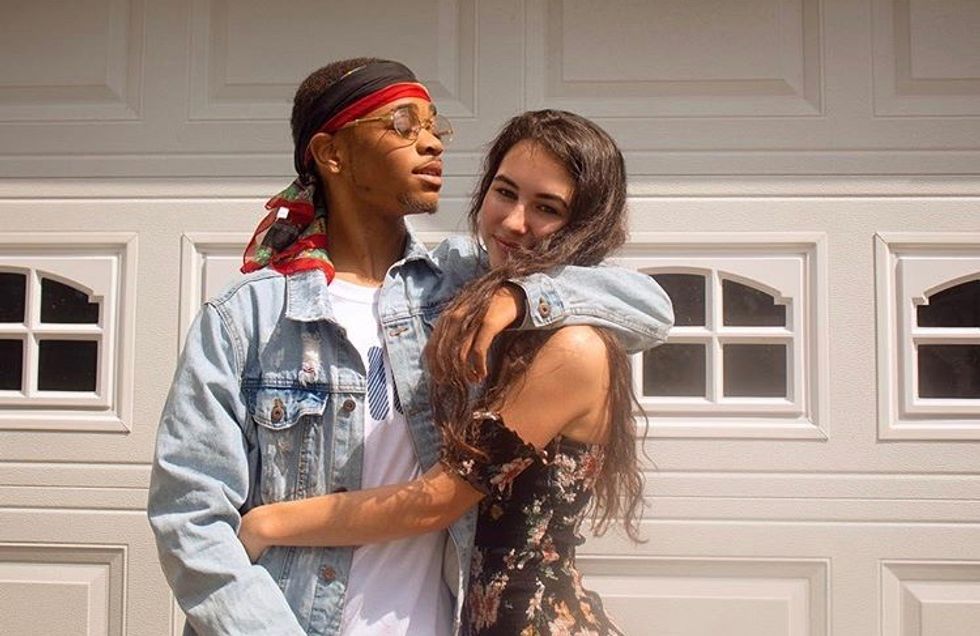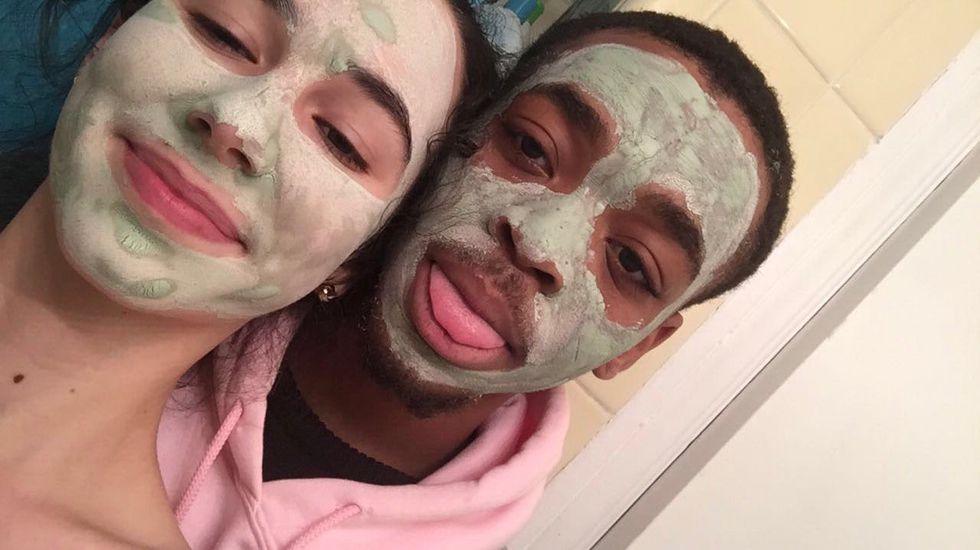It was the summer after my junior year when I was scrolling through my Instagram account and stumbled upon a group of my friends dancing to Wale's "Scarface Rozay Gotti" at the local Dollar Tree. The girls were decked out in party hats, sunglasses and those cheap feather boas that end up shedding all over your t-shirt. I clicked on the profile of the account who posted the video and encountered a bio that read "dis my finsta hoes" followed by an explicit amount of money emojis. This was the moment I decided I needed to get in on the action and see what this fake Instagram, or "finsta" thing was all about.
Now don't get me wrong, I hold no judgment for the people who post scandalous thirst traps or selfies of them on the bathroom floor sobbing over their tinder matches that have gone wrong, but this wasn't the content I had in mind when creating my account. Instead, I found an old snapchat video that my best friend took of me mouthing the words to a popular song in the passenger seat of her car on the way home from musical rehearsal. Why this video? Honestly, because I thought that my highlight was glowing.
Little did I know that upon creating this account, I had launched myself into a strange, yet fascinating subculture of teenage interaction. I was existing in a space where discussing serious issues like heartbreak and anxiety was coupled with The Office memes, and screenshots of texts conversations sharing inside jokes between friends. As one user on twitter so eloquently stated, "finsta culture is never talking to someone IRL but knowing they've had three mental breakdowns this week." It was a strange insight into the minds of my classmates, creating a sort of comradery surrounding relatable topics like a difficult assignment or an overwhelming week at work.
However, I saw an equal amount of posts perpetuating High School drama by targeting classmates with not-so-vague posts about their appearance or actions. The toxicity of "subtweeting," or indirectly gossiping about others through social media platforms, allowed people to bully others through the filter of their screens. This behavior is consistent with a recent trend of normalizing being rude online, which is a growing social concern of mine.
To be honest, there were moments where the amount of vulnerability shared by others for hundreds of people to access was alarming. I remember scrolling across a post where a girl I hardly knew told an emotional story about a fight which she had with her mom that turned physical, posting pictures of her injuries. I clicked on the comment section to see thirty one-liners like "Here for you" or "<3," in response. The girl's authenticity was undeniable, and I hope that the post created a community of comfort for people in similar situations.
I would never judge another person for their method of finding closure after traumatic experiences and admire her honesty. But personally, as someone who has struggled with navigating a relationship with an abusive parent, I couldn't imagine being so intimate on this platform. It just felt weird for me to post about personal struggles which I would normally only share with my friends, especially because I feared someone using my vulnerabilities against me in the future. I grew up being taught that everything posted on the internet will follow me forever, and I didn't want my legacy to be defined by my High School finsta posts.
Furthermore, I noticed a stark contrast between the content on many peoples' regular Instagram accounts (or "rinstas") and their finstas. A theme existed where people would post their best pictures that presented an ideal lifestyle on their main accounts while displaying their rough or comical moments on their finstas. I was not exempt from this trend and found myself comparing the two profiles and seeing a much different narrative.


Despite my intentional avoidance of controversial content, I disliked this pressure to be perfect on my rinsta and funny or relatable on my finsta. It got to a point where I hardly ever posted on either purely because I didn't want to contribute to, or contradict, the image that I had cultivated over time. Finally, I decided I would just delete my finsta and try to be more genuine on my main Instagram account. I know now that it's really not that deep, and my social media presence doesn't define who I am or reflect what I am doing with my life. In college, I have bigger priorities which leave me with little time to stress over social media as I did in High School, and honestly, I am much happier now because of it.



















